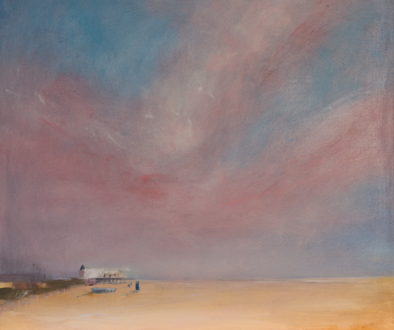Victorians and Christmas Music
Many popular carols sung at Christmas in America were first published during the Victorian era (1837-1901), marked by the reign of Queen Victoria of England. This period in America, of course, included the Civil War (1861-1865), the Emancipation Proclamation (1863), and the passage of the 13th Amendment abolishing slavery (1865).
Christmas carols had evolved in Europe over centuries as secular and religious music. Victorians revived interest in Christmas carols, collecting and printing many older ones. Tunes associated with them were out of style, so new ones were written. Some melodies were taken from folk songs; others were newly composed.
“Most of the traditional carols we know and love and sing in English were published in a prolific period in the late 19th century, the latter part of the Victorian era,” said MAC Museum Educator Brenda Leonard.
These include “Good King Wenceslas,” (1853), “It Came Upon a Midnight Clear” (1849), “O Little Town of Bethlehem” (1868), “Away In a Manger” (circa 1885), the spiritual “Go Tell It On the Mountain” (1871), and the secular “Jingle Bells” (published in 1857). All of these have been sung for close to 150 years, some with roots much older in their words or melodies.

Ronald Clancy, of North Cape May, publisher and author of Christmas Classics, Ltd., which celebrates the art, music, and history of Christmas carols in its publications and recordings, tells the story of an American poet’s anguish as the source for an enduring Christmas carol.
“In 1863, Henry Wordsworth Longfellow wrote a poem called Christmas Bells. He was suffering a state of depression on Christmas Eve. He had lost his beloved wife two years prior, unable to save her when her dress caught fire, and suffered severe burns, himself, in the tragedy. He was beside himself with worry over his eldest son who’d gone to fight for the Union Army in the Civil War. When he heard the church bells on Christmas, he felt a surge of hope. The poem became the lyrics for the Christmas carol, “I Heard the Bells on Christmas Day.”


It was after the Emancipation Proclamation and subsequent passing of the 13th Amendment that the African American spiritual genre of music, at the time called “slave songs,” began to be heard in public spaces. The nativity-themed spiritual “Go Tell It on the Mountain” was introduced to the world by the Fisk Jubilee Singers in 1871 to raise money for Fisk University. The university opened in 1866 in Nashville, Tennessee as an educational institution that would be open to all, regardless of race, and was almost forced to shut down due to lack of financial support. The singers toured nationally and internationally, and sang for Queen Victoria herself, as well as Mark Twain, Ulysses S. Grant, Johann Strauss, and other dignitaries of the time, often moving their audiences to tears. Using proceeds from the highly profitable tour, Fisk built Jubilee Hall in 1876, the South’s first permanent structure built for the education of Black students, and a National Historic Landmark.
Another beautiful, nativity-related spiritual, “Mary Had a Baby,” has origins from the 1600s. I recommend taking time this season to listen to an exceptional performance of “Mary Had a Baby,” available on YouTube and produced by Riddle Films, performed by the incomparable Nathaniel Dett Chorale, featuring sublime soloist Melissa Davis.
Merry Christmas. Peace on earth. Goodwill to all.

Christmas Bells
Henry Wadsworth Longfellow
1807–1882
I heard the bells on Christmas Day
Their old, familiar carols play,
And wild and sweet
The words repeat
Of peace on earth, good-will to men!
And thought how, as the day had come,
The belfries of all Christendom
Had rolled along
The unbroken song
Of peace on earth, good-will to men!
Till ringing, singing on its way,
The world revolved from night to day,
A voice, a chime,
A chant sublime
Of peace on earth, good-will to men!
Then from each black, accursed mouth
The cannon thundered in the South,
And with the sound
The carols drowned
Of peace on earth, good-will to men!
It was as if an earthquake rent
The hearth-stones of a continent,
And made forlorn
The households born
Of peace on earth, good-will to men!
And in despair I bowed my head;
“There is no peace on earth,” I said;
“For hate is strong,
And mocks the song
Of peace on earth, good-will to men!”
Then pealed the bells more loud and deep:
“God is not dead, nor doth He sleep;
The Wrong shall fail,
The Right prevail,
With peace on earth, good-will to men.”



